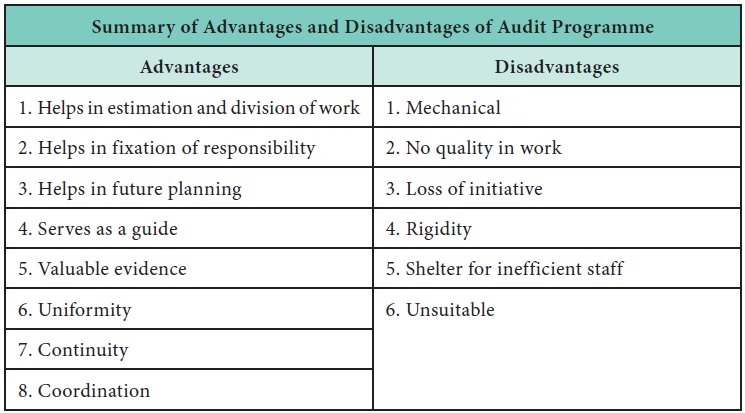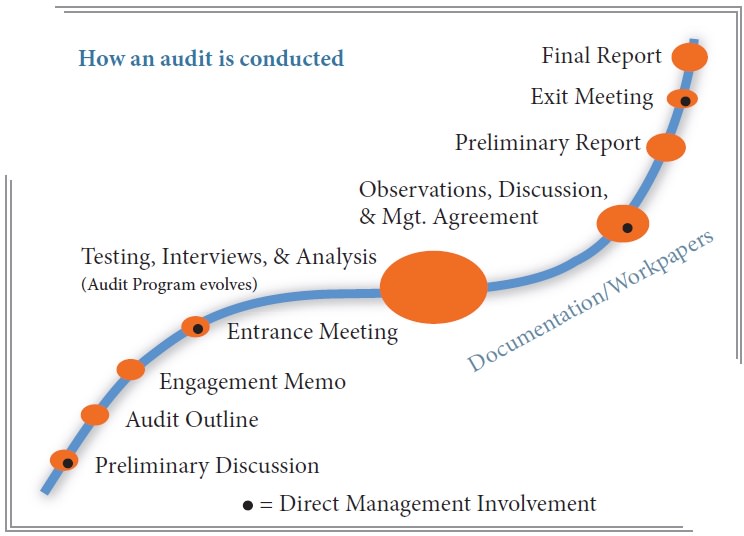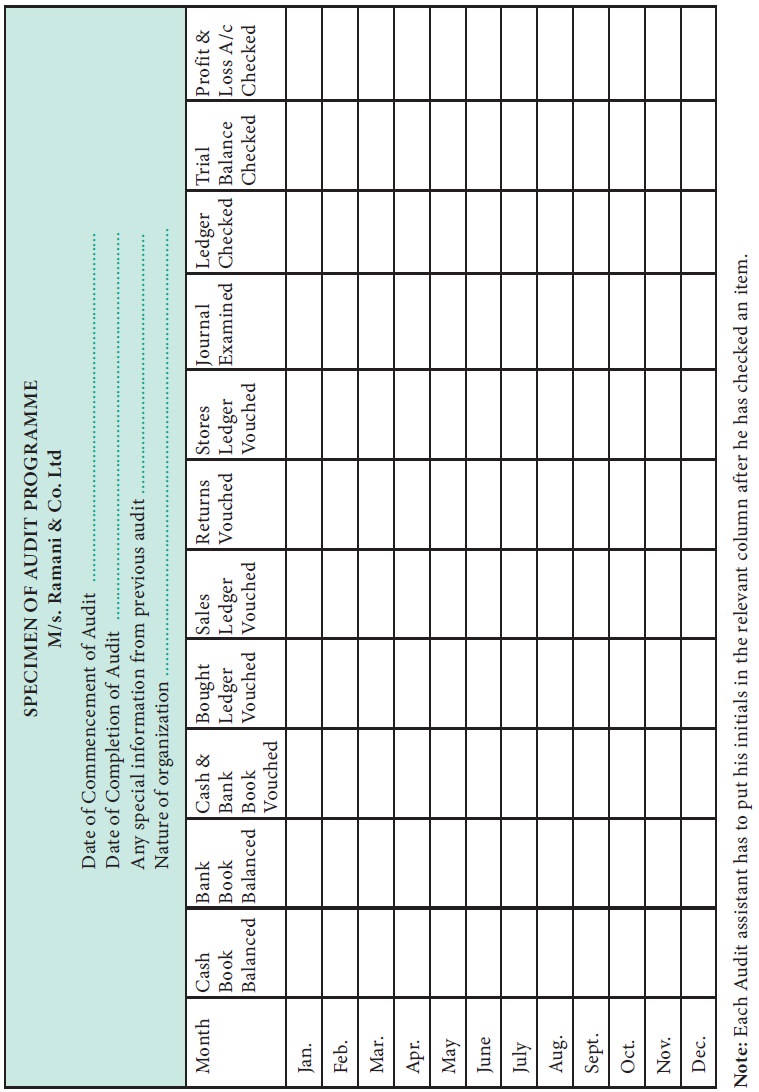Meaning, Definition, Benefits (or) Advantages, Disadvantages, Objectives, Contents - Audit Programme | 11th Auditing : Chapter 4 : Audit Planning
Chapter: 11th Auditing : Chapter 4 : Audit Planning
Audit Programme
Audit Programme
MEANING
An audit programme is a detailed, written statement
designed by the auditor indicating the work to be performed by the audit
assistants, specifying the time limit for completion of work, instructions and
guidance to the audit staff. In short, it is a tool for planning, directing and
controlling the audit work.
An audit programme is a detailed plan of the
auditing work to be performed. It specifies the procedures to be followed in
the conduct of audit more efficiently. The auditor outlines the whole procedure
of audit from beginning till the finalization of audit report. Audit programme
is generally contained in the audit notebook.
Definition
Prof.
Meigs defines an audit programme as, “an
audit programme is a detailed plan of the auditing work to be performed,
specifying the procedures to be followed in verification of each item and the
financial statements and giving the estimated time required.”
Features (or) Characteristics of an Audit Programme
The features of an audit programme may be of the
following:
1.
It is a set of procedures to be adopted to conduct
the audit more efficiently.
2.
It is a written scheme designed by the auditor.
3.
It is a blue print of the audit work.
4.
It facilitates delegation of work, based on the
capabilities of audit staff.
5.
It acts as evidence in future for the audit work
being performed.
6.
It specifies the work to be done by the audit
staff, the manner and time limit for completion of the work.
Objectives of Audit Programme
The following are the objectives of audit programme:
1.
To provide clear instructions to the audit
assistants specifying the nature of work to be performed and fixing the time
span for completion of each work.
2.
To facilitate coordination among various parts of
audit work.
3.
To ensure uniformity in the performance of audit
work and to avoid duplication and repetition of work.
4.
To attain a fair allocation of work among audit
team.
5.
To fix responsibility and accountability of each
audit assistant.
6. To serve
as a guide for planning the audit work in future.
7.
To serve as evidence in future showing the date of
completion of audit work, methods or procedures undertaken, persons involved in
completion of audit work etc.
Contents of an Audit Programme
The following are the details of an audit
programme:
1. Name of
the client.
2. Nature of
operations and business of client.
3. Review of
system of internal check.
4. Date of
commencement of audit work.
5. Duration
of audit work.
6. Accounting
system followed in client organization.
7. Review
the report of the previous auditor.
8. Review
the remarks, instructions or objections raised in the previous audit report.
9.
Examine the various ledger accounts and subsidiary
books.
10. Examine
the statutory books and registers, profit and loss account, and balance sheet.
Advantages of an Audit Programme
An audit programme can give the following
advantages:
1.
Helps in
Estimation and Division of Work: Audit Programme helps in estimating the quantum of audit work
in advance and also helps in dividing the work among the audit assistants based
on their capabilities.
2.
Helps in
Fixation of Responsibility: It enables to fix responsibility
on the audit assistants by clearly defining the scope of work.
3.
Helps in
Future Planning: Audit programme
serves as a basis for planning the audit work for subsequent year.
4.
Serves as
a Guide: It serves
as a valuable guide for the audit staff in execution of the audit work
for succeeding years.
5.
Valuable
Evidence: It serves as an evidence for
the work done as initials of those who have done the particular work are appended
to it. The auditor can produce the audit programme as a proof when a charge of
negligence being brought upon him.
6.
Uniformity:
It
provides for uniformity in audit
work as the same work will be done every year.
7.
Continuity:
When an
audit staff goes on leave others can
continue the work by referring to the audit programme, hence, audit programme
provides for continuity of work.
8.
Coordination:
If
facilitates coordination and helps
in supervising the work of the audit staff.
Disadvantages of an Audit
Programme
The disadvantages that may be experienced by
conducting audit as per predetermined audit programme are -
1. Mechancial: When audit work is conducted mechanically every year
based on the audit programme, it causes monotony and boredom to the auditor and
audit staffs.
2. No Quality in Work: The audit
staff will be more interested to
complete the work in time rather than to maintain any standard in the work.
3. Loss of Initiative: Audit
staff cannot take their own
decisions and they are compelled to comply with the audit programme. Hence, an
efficient audit clerk loses his initiative and interest as he cannot make any
suggestions.
4. Rigidity: A rigid and inflexible audit programme cannot be laid for all types
of business. During the course of audit, new areas to be verified may come to
the notice of the audit staff. Unless the audit programme is revised, such
areas may escape from auditing.
5. Shelter for Inefficient Staff: Inefficient audit staffs conceal their mistakes or
weakness on the basis of audit programme. Hence, it provides shelter for
inefficient audit staff.
6.
Unsuitable:
Pre-determined
audit programme is not suitable for
small business organizations.



Related Topics